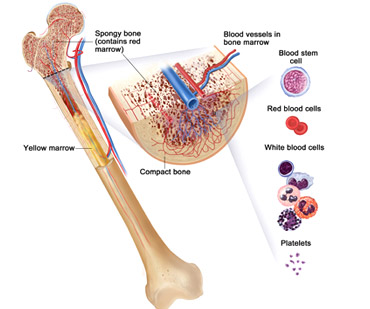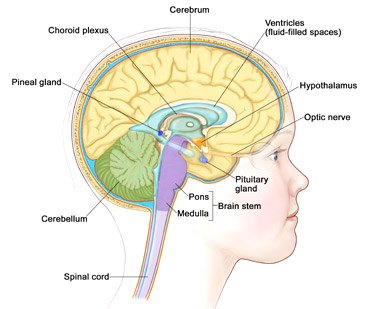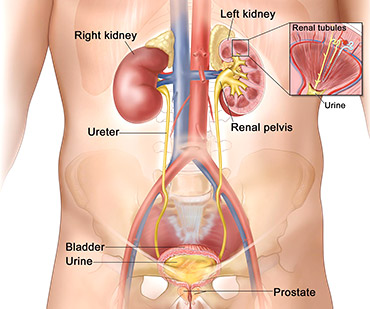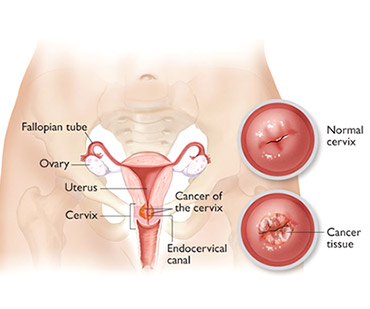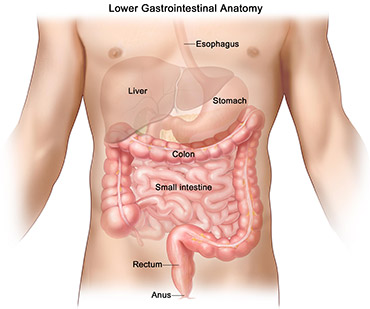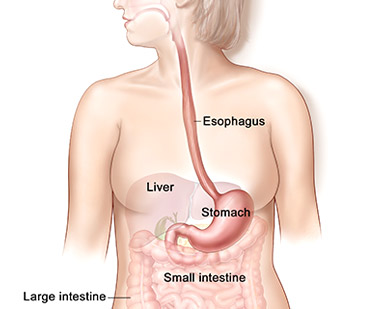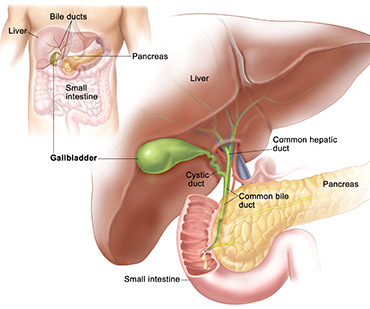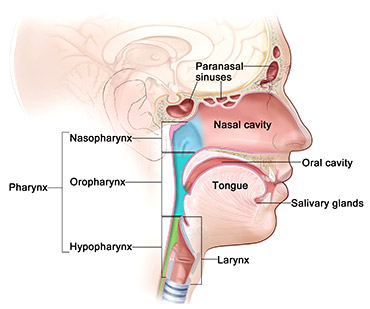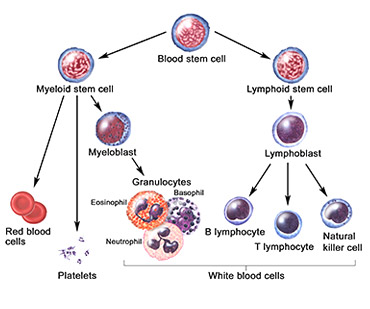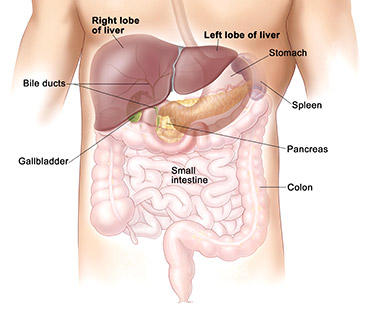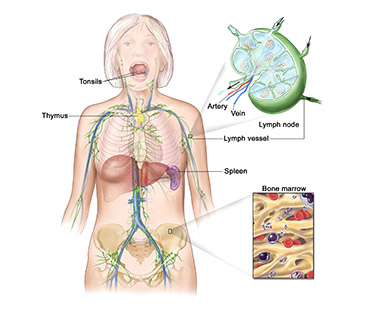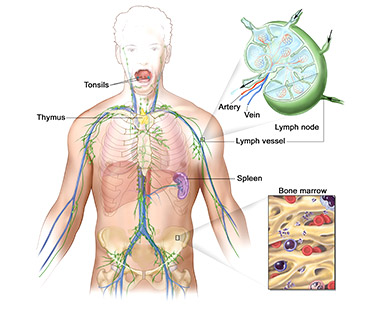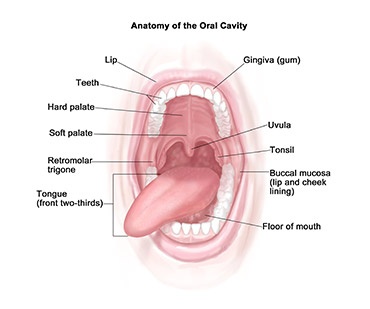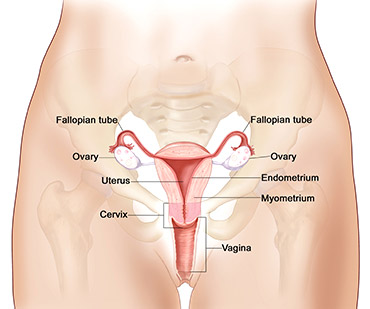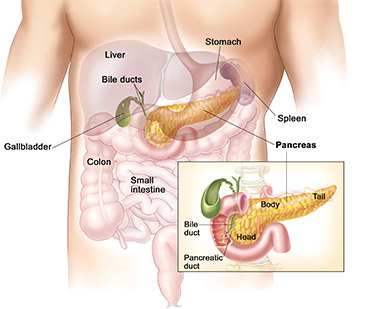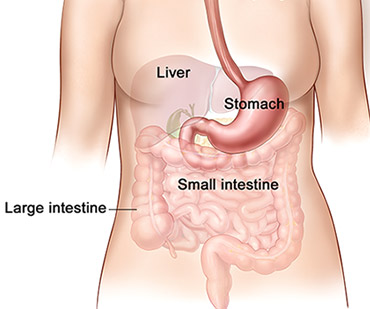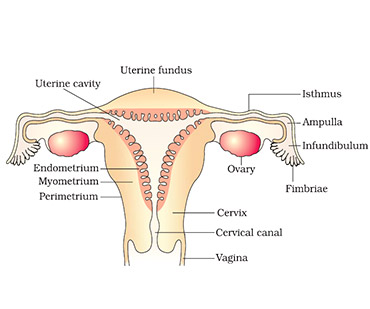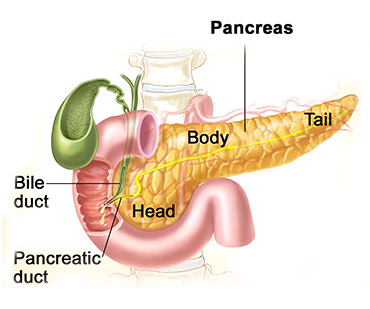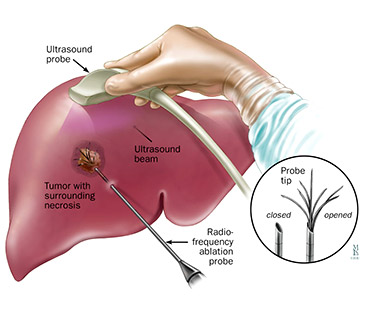
Advanced Cancer Treatment, Medical & Surgical Oncology, CyberKnife, Novalis Radiosurgery at Super Speciality Hospitals in India
Cancer is a group of diseases involving abnormal cell growth with the potential to invade or spread to other parts of the body. Cancer can be treated by surgery, chemotherapy, radiation therapy, hormonal therapy, and targeted therapy (including immunotherapy such as monoclonal antibody therapy). Not all tumors are cancerous; benign tumors do not spread to other parts of the body. Possible signs and symptoms include a lump, abnormal bleeding, prolonged cough, unexplained weight loss and a change in bowel movements. While these symptoms may indicate cancer, they may have other causes.
Why should patient choose Indian Hospitals for Cancer Treatment ?
- World's most skilled and knowledgeable Cancer doctors are now in India with vast experience of working in highly advanced cancer hospitals in USA and Europe.
- Indian hospitals now have the latest High-end technology infrastructure like Brain Suite, Novelis TX, PET Scan, CyberKnife , Gamma Knife, IMRT and IGRT that help quick diagnosis and recovery.
- Best quality Drugs, Medicines and Consumables for Canscer Care are produced in India at lowest cost and exported to World's best hospital. This results in lowest overall cost of world class cancer treatment in India.
- Well trained english speaking Nurses and other paramedics providing compassionate care.

Breast Cancer Treatment
Breast cancer is cancer that develops from breast tissue. A family history of breast cancer and other factors increase the risk of breast cancer. Signs of breast cancer may include a lump in the breast, a change in breast shape, dimpling of the skin, fluid coming from the nipple, or a red scaly patch of skin. Its treatment depends on the stage of cancer. It may consist of chemotherapy, radiation, hormone therapy and surgery. Read More...
Bone Cancer Treatment
Bone cancer is a malignant (cancerous) tumor it's starts in the bone. Bone cancer starts when cells in the body begin to grow out of control that destroys normal bone tissue. Not all bone tumors are malignant. In fact, benign bone tumors are more common than malignant ones.
Read More →
Prostate Cancer Treatment
Prostate cancer is a disease which only affects men. Cancer begins to grow in the man's prostate gland — a small walnut-shaped gland that produces the seminal fluid that nourishes and transports sperm. It may initially cause no symptoms. In later stages it can lead to difficulty urinating, blood in the urine, or pain in the pelvis, back or when urinating.
Read More →
Brain Cancer (Tumour) Treatment
Brain cancer is a malignant tumour can start in the brain. Malignant tumors are aggressive and invasive, taking space, nutrients and blood from healthy cells. Symptoms include new or increasingly strong headaches, blurred vision, loss of balance, confusion and seizures. In some cases, there may be no symptoms. Treatments include surgery, radiation and chemotherapy.
Read More →
Bladder Cancer Surgery
Bladder cancer is a type of cancer that begins in your bladder - a balloon-shaped organ in your pelvic area that stores urine. Bladder cancer typically affects older adults. It's usually diagnosed early, when it's still treatable the most common symptom is blood in the urine. Treatments include surgery, biological therapy and chemotherapy.
Read More →
Cervical Cancer Treatment
Cervical cancer is cancer of the cervix — the lower part of the uterus that connects the womb and the vagina. It's caused by a common virus called Human papillomavirus (HPV). Symptoms include abnormal vaginal bleeding, pelvic pain, or pain during sexual intercourse. Foul smelling white discharge and low back pain or lower abdominal pain may also occur. Treatments include surgery, radiation and chemotherapy.
Read More →
Colon Cancer Surgery
Colon cancer (also known as colorectal cancer, rectal cancer, or bowel cancer) is the development of cancer from the colon or rectum. Signs may include blood in the stool, a change in bowel movements, weight loss, and feeling tired all the time. Treatment include surgery to remove the cancer, chemotherapy and radiation therapy.
Read More →
Esophageal Cancer Treatment
Esophageal cancer (or oesophageal cancer) is cancer arising from the esophagus—the food pipe that runs between the throat and the stomach. Smoking and poorly controlled acid reflux are significant risk factors for esophageal cancer. Symptoms often include difficulty in swallowing, weight loss and chest pain. Treatment focuses on removing the cancer through surgery.
Read More →
Gallbladder Cancer Treatment
Gallbladder cancer is a rare disease in which malignant (cancer) cells are found in the tissues of the gallbladder. The gallbladder is a small pouch that stores bile. Bile is a fluid that helps us digest food. Its main function is to break down fats in food. Bile is made by the liver and stored in the gallbladder. When food is being broken down in the stomach and intestines, bile is released from the gallbladder through a tube called the common bile duct, which connects the gallbladder and liver to the first part of the small intestine.
Read More →
Head and Neck Cancer Treatment
Head and neck cancer is a term used to describe a number of different malignant tumors that develop in or around the throat, larynx, nose, sinuses, and mouth. Most head and neck cancers are squamous cell carcinomas. This type of cancer begins in the flat, squamous cells that make up the thin layer of tissue on the surface of the structures in the head and neck.
Read More →
Leukemia Treatment
Leukemia is cancer of the blood cells. It starts in the bone marrow and result in high numbers of abnormal white blood cells. These white blood cells are not fully developed and are called blasts or leukemia cells. Treatment includes chemotherapy that's sometimes followed by radiation and stem-cell transplant.
Read More →
Liver Cancer Treatment
The liver is the largest internal organ in the body. It is essential for the digestion of food. No one can survive without a liver. It has several important functions in the body. For example, collecting and filtering blood from the intestines, cleans toxins from the blood, makes bile that helps digest fat, makes substances that help blood clot, makes, stores, and releases sugar for energy. Symptoms are abdominal pain, yellow skin, nausea or liver dysfunction. Treatments vary but may include removal of part of the liver and liver transplant.
Read More →
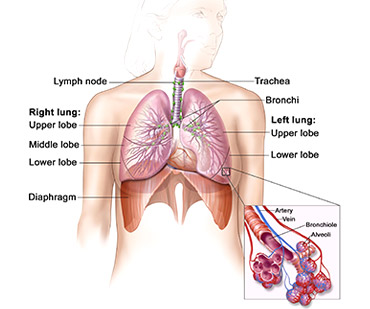
Lung Cancer Treatment
Lung cancer, also known as lung carcinoma, is a malignant lung tumor characterized by uncontrolled cell growth in tissues of the lung. If left untreated, this growth can spread beyond the lung by the process of metastasis into nearby tissue or other parts of the body. Most cancers that start in the lung, known as primary lung cancers, are carcinomas. The two main types are small-cell lung carcinoma (SCLC) and non-small-cell lung carcinoma. Tobacco smoking is the most common cause of lung cancer.
Read More →
Lymphedema Treatment
Lymphedema occurs when the lymph system is damaged or blocked. Fluid builds up in soft body tissues and causes swelling. It is a common problem that may be caused by cancer and cancer treatment. Lymphedema usually affects an arm or leg, but it can also affect other parts of the body. Lymphedema can cause long-term physical, psychological, and social problems for patients.
Read More →
Lymphoma Cancer Treatment
Lymphoma is a group of blood cell tumors that develop from lymphatic cells. The lymphatic system is made up of thin tubes that branch out to all parts of the body. Its job is to fight infection and disease. The lymphatic system carries lymph, a colorless fluid that contains lymphocytes. Lymphocytes are a type of white blood cell that make up part of the immune system and help fight germs in the body.
Read More →
Oral Cancer Treatment
Oral cancer or mouth cancer, a type of head and neck cancer, is any cancerous tissue growth located in the oral cavity- it is cancer that occurs in any part of the mouth; on the tongue's surface, in the lips, inside the cheek, in the gums, in the roof and floor of the mouth, in the tonsils, and also the salivary glands.
Read More →
Ovarian Cancer Treatment
Ovarian cancer begins in the ovaries. Ovaries are reproductive glands found only in females (women). Every woman has two ovaries as part of her reproductive system, one located on each side of the uterus. It is the 5th most common cancer among females. Until recently, the disease is known to be a “silent killer” because it is not normally detected until it has already spread in different parts of the body.
Read More →
Pancreatic Cancer Treatment
Pancreatic cancer starts in the tissues of the pancreas. The pancreas is an organ located behind the stomach. It is shaped a bit like a fish with a wide head, a tapering body, and a narrow, pointed tail. In adults it is about 6 inches long but less than 2 inches wide. It secretes enzymes that aid digestion and hormones that help regulate the metabolism of sugar in the body.
Read More →
Stomach Cancer Treatment
Stomach cancer, or gastric cancer, is a cancer that takes place in the stomach. The stomach is the muscular sac found in the upper middle part of a person’s abdomen, under the ribs. It is part of the digestive system. Signs and symptoms may include weight loss, yellowing of the skin and whites of the eyes, vomiting, difficulty swallowing, and blood in the stool among others.
Read More →
Uterine Cancer Treatment
Uterine cancer or womb cancer is any type of cancer that emerges from the tissue of the uterus. It is the most common cancer of a woman’s reproductive system. Uterine cancer begins when normal cells in the uterus change and grow uncontrollably, forming a mass called a tumor. A key sign is abnormal vaginal bleeding, such as bleeding after menopause or bleeding between periods. Treatments include surgery to remove the uterus, radiation, hormone therapy and chemotherapy.
Read More →
Whipple surgery for Pancreatic Cancer
The Whipple Procedure, or pancreaticoduodenectomy, is the most commonly performed surgery to remove tumors in the pancreas. In a standard Whipple procedure, the surgeon removes the head of the pancreas, the gallbladder, part of the duodenum which is the uppermost portion of the small intestine, a small portion of the stomach called the pylorus, and the lymph nodes near the head of the pancreas.
Read More →
Radio Frequency Ablation for Liver Cancer
Radiofrequency ablation (RFA) is a treatment that uses imaging guidance to place a needle electrode through the skin into a liver tumor. High-frequency electrical currents are passed through the electrode, creating heat that destroys the cancer cells, without removing them. RFA is an effective treatment option for patients who might have difficulty with surgery or those whose tumors are less than one and a half inches in diameter.
Read More →


